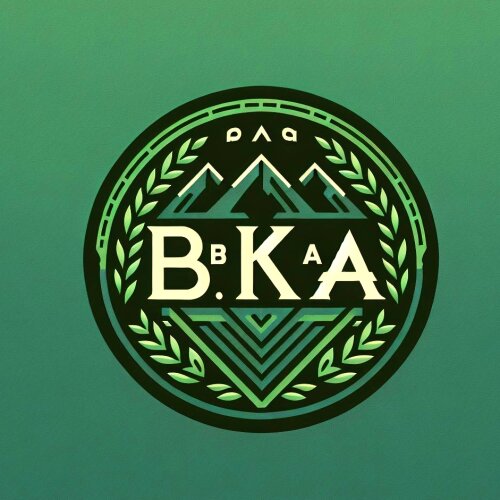Best Dangerous Product Lawyers in Trinidad and Tobago
Share your needs with us, get contacted by law firms.
Free. Takes 2 min.
Or refine your search by selecting a city:
List of the best lawyers in Trinidad and Tobago
About Dangerous Product Law in Trinidad and Tobago
The law surrounding dangerous products in Trinidad and Tobago focuses on ensuring consumer safety by holding manufacturers, distributors, and retailers accountable for any harm caused by defective or unsafe products. This area of law is designed to prevent injuries and facilitate compensation for affected individuals. Dangerous product law encompasses a range of regulations aimed at preventing harm from items such as faulty electronics, contaminated food, ineffective medications, and hazardous chemicals.
Why You May Need a Lawyer
Legal assistance may be necessary in several scenarios involving dangerous products. These include situations where an individual has suffered harm because of a defective or unsafe product, such as an electrical appliance causing injury or a food product leading to illness. Additionally, consulting a lawyer might be crucial if there is a need to navigate complex product recalls, seek compensation for damages, or understand one's rights and responsibilities under local and international law.
Local Laws Overview
The key aspects of dangerous product laws in Trinidad and Tobago mainly revolve around protecting consumers and ensuring accountability. Key regulations include the Consumer Protection and Safety Act, which mandates that products meet certain safety standards, and the Sale of Goods Act which holds sellers responsible for the safety of products sold. The local Bureau of Standards also plays a pivotal role in setting and enforcing product safety standards. Manufacturers and sellers are required to ensure that their products are safe, properly labeled, and free from defects.
Frequently Asked Questions
What constitutes a dangerous product?
A dangerous product is any item that poses an unreasonable risk of harm to a consumer when used as intended or in a foreseeable way. This can include defective goods, contaminated food, or products lacking appropriate warnings or instructions.
How can I report a dangerous product in Trinidad and Tobago?
You can report a dangerous product to the Trinidad and Tobago Bureau of Standards or the Consumer Affairs Division. These bodies have mechanisms to address such complaints and can initiate investigations or recalls.
What compensation can I seek if harmed by a dangerous product?
In Trinidad and Tobago, victims of dangerous products may seek compensation for medical expenses, lost wages, pain and suffering, and property damage. An attorney can help assess your case and pursue appropriate claims.
Who is liable for a dangerous product?
Liability for dangerous products typically falls on manufacturers, distributors, and retailers. Each may be held responsible depending on the nature of the defect and their role in the product's distribution chain.
What is the process for a product recall?
A product recall can be initiated voluntarily by the manufacturer or mandated by regulatory bodies. The process involves identifying the issue, notifying consumers, and retrieving the product from the market. Proper remedies are then implemented to ensure consumer safety.
Do I need to keep the receipt or product packaging for a claim?
Keeping the receipt or product packaging can assist your claim by providing proof of purchase and product identification. However, these are not always essential, especially if other evidence supports your case.
Can I join a class-action lawsuit for dangerous products?
Yes, if there are multiple individuals affected by the same product defect, joining a class-action lawsuit might be possible. A lawyer can help determine if this is a viable option and if any such suits are underway.
What should I do if I find a defect in a product?
If you discover a defect, you should stop using the product immediately, document the defect with photographs or videos, report it to the manufacturer or retailer, and if necessary, inform appropriate regulatory bodies.
Are there time limits for filing claims related to dangerous products?
Yes, there are time limits known as statutes of limitations which dictate how long you have to file a claim after discovering harm from a dangerous product. Consulting a lawyer promptly can ensure your claim is filed within this period.
Can I seek legal action if the product has a warning label?
Even with a warning label, you may seek legal action if the product is inherently unsafe, if the warning was inadequate, or if the defect was unrelated to the warned risk. Legal advice can clarify these specifics.
Additional Resources
For further assistance or information, individuals may consider resources such as the Trinidad and Tobago Bureau of Standards and the Consumer Affairs Division. Legal aid clinics and consumer protection organizations can also provide support and guidance.
Next Steps
If you require legal assistance concerning a dangerous product, it is advisable to consult a lawyer specialized in consumer protection or product liability. Start by gathering all relevant information and documentation concerning the product and the harm caused. Scheduling a consultation with a legal expert can help understand your rights, potential remedies, and the appropriate steps forward.
Lawzana helps you find the best lawyers and law firms in Trinidad and Tobago through a curated and pre-screened list of qualified legal professionals. Our platform offers rankings and detailed profiles of attorneys and law firms, allowing you to compare based on practice areas, including Dangerous Product, experience, and client feedback.
Each profile includes a description of the firm's areas of practice, client reviews, team members and partners, year of establishment, spoken languages, office locations, contact information, social media presence, and any published articles or resources. Most firms on our platform speak English and are experienced in both local and international legal matters.
Get a quote from top-rated law firms in Trinidad and Tobago — quickly, securely, and without unnecessary hassle.
Disclaimer:
The information provided on this page is for general informational purposes only and does not constitute legal advice. While we strive to ensure the accuracy and relevance of the content, legal information may change over time, and interpretations of the law can vary. You should always consult with a qualified legal professional for advice specific to your situation.
We disclaim all liability for actions taken or not taken based on the content of this page. If you believe any information is incorrect or outdated, please contact us, and we will review and update it where appropriate.
Browse dangerous product law firms by city in Trinidad and Tobago
Refine your search by selecting a city.












